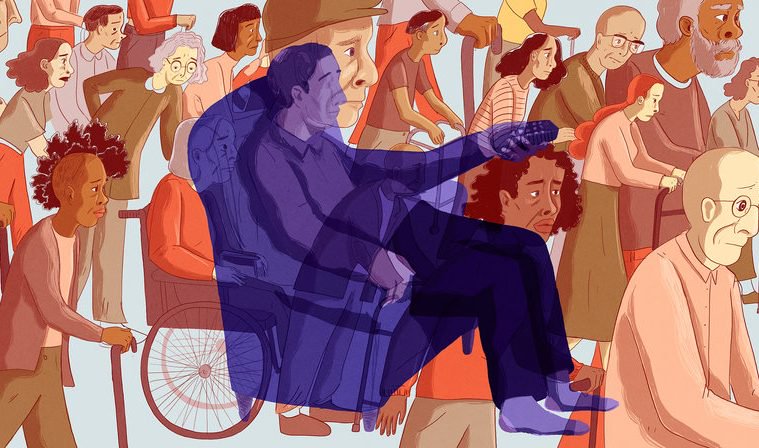
It’s long been known that sitting is bad for our health. Physical exercise has been proven to be good for both physical and psychological well-being, and not just because it makes us look great. By building strength now, we’re less likely to need assistance when we’re older. Walking has a long list of benefits, including lowered blood pressure and cholesterol, reduced risk of stroke and heart attack, stronger bones, and an overall increased sense of well-being. One study even showed that doing one minute of intense exercise is equally as beneficial as doing 45 minutes. Basically, exercising, in any capacity, can save your life.
A recent study of sitting and walking ability found that prolonged sitting impacts adults between the ages of 50 to 71 years more than it does young people. The study surveyed the adults in this age range for 8-10 years and saw that those who tended to sit more and were the least active had three times the risk of difficulty walking by the end of the study compared to their more active counterparts.
Our lifestyles today make it very difficult for us to choose to be active outside of our commute to and from work. Depending on our job, we may remain sitting throughout the whole day, and for those of us who choose to relax by watching television after work, this could mean sitting for 12-14 hours a day.

Epidemiologist Loretta DiPietro of the Milken Institute School of Public Health at George Washington University warns that, as the years wear on, prolonged sitting actually reduces the ability of older people to get around on foot. The study also found that some people ended up unable to walk at all. “Young bodies may rebound from prolonged sitting with an hour at the gym,” says DiPeitro, but that seems less true in late middle age. “Sitting and watching TV for long periods, especially in the evening,” she says, “has got to be one of the most dangerous things that older people can do.”
One of the more frightening findings of this study is that it was conducted between the mid-1990s to 2005 or so, long before we had streaming access. “Before binge watching, at least when a show ended you got up and walked around,” DiPietro says. “It’s now possible to watch several hours without moving.” So imagine that. Lying down all night to sleep, waking up to get into your car to sit for however long, sitting all day at work, then in your car to get home, then in front of the TV before returning to bed.  To measure the effect of prolonged sitting on mobility, DiPeitro and her team took data from the large NIH-AARP Diet and Health Study of men and women ages 50 to 71. The participants were all healthy when the study started in 1995 and 1996.
To measure the effect of prolonged sitting on mobility, DiPeitro and her team took data from the large NIH-AARP Diet and Health Study of men and women ages 50 to 71. The participants were all healthy when the study started in 1995 and 1996.
At the beginning of the investigation, researchers monitored how many participants watched TV, exercised, or did gardening, housework, or other physical activity. This included ‘light’ physical activity like walking to get the mail or to the car. The participants who watched five or more hours of TV per day had a 65% greater risk of reporting a mobility disability at the study’s end, compared with those who watched fewer than two hours per day.
DiPietro suggests that if do you choose to sit and embark on a binge watching marathon, you should get up at least every 30 minutes. “And if you insist on staying seated during that 15 second interval between episodes,” DiPietro says, “at least stand up, march in place, jump around, kick legs — do anything to move about for at least one to two minutes.” This would be “phenomenal” to mobility.
Your health is in your hands, and choosing to be active for at least an hour each day will do wonders. A walk to the store or an impromptu jumping jacks session will not only help to relieve any muscle tension, but also help your brain to reset and break free from stress, worry, and fatigue.
Having Trouble Losing Excess Weight?
Having trouble losing excess weight? This could be one of the biggest reasons why.
We know so much about food now yet much of the population is overweight and unhealthy because of the quality of our food and our perception about food.
Luckily there’s a quiz that you can take to find out where you stand on food addiction. You can take it here.
After you will get results and specific information based on your score. Try the quiz!
Source Article from http://feedproxy.google.com/~r/Collective-evolution/~3/0DDwz5gRpaU/
Related posts:
Views: 0
 RSS Feed
RSS Feed

















 September 21st, 2017
September 21st, 2017  Awake Goy
Awake Goy 
 Posted in
Posted in  Tags:
Tags: 
















